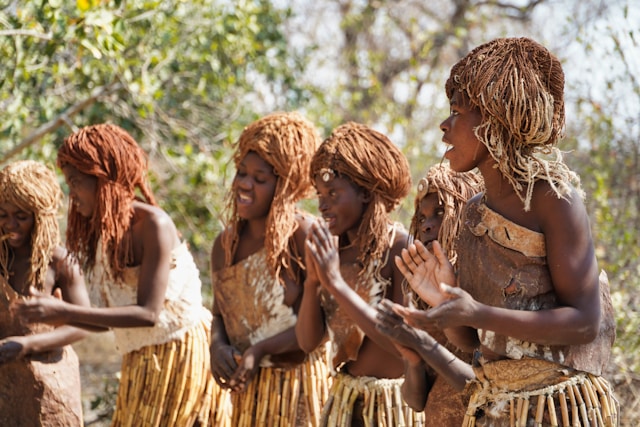Africa is a continent rich in cultural heritage, with diverse communities practicing unique traditions that reflect their history, values, and way of life. From music and dance to ceremonies and craftsmanship, traditions are an integral part of daily life and identity.
The Diversity of African Traditions
Africa is home to thousands of ethnic groups, each with its own language, customs, and beliefs. Some common elements across the continent include:
- Oral storytelling: Passing knowledge, history, and morals from one generation to the next.
- Rituals and ceremonies: Celebrations of birth, initiation, marriage, and harvest that strengthen social bonds.
- Music and dance: Central to cultural expression, often used in religious and social gatherings.
- Art and craftsmanship: Beadwork, pottery, weaving, and carving reflect both aesthetic and spiritual significance.
African traditions are deeply connected to community life, spirituality, and the environment. They provide a sense of identity and continuity, even as societies modernize.
South African Traditions: A Mosaic of Cultures
South Africa is often called the “Rainbow Nation” due to its multicultural population, consisting of groups such as Zulu, Xhosa, Sotho, Tswana, Ndebele, and Khoisan, alongside European and Asian influences. Each community preserves its own traditions while contributing to a shared national culture.
Key South African Traditions
- Rites of Passage:
- Many communities celebrate initiation ceremonies that mark the transition from childhood to adulthood. For example, the Zulu Umemulo is a coming-of-age celebration for young women.
- Traditional Dress and Beadwork:
- Beadwork carries deep meaning in South African cultures. Colors, patterns, and designs can communicate social status, age, marital status, and clan identity.
- Music and Dance:
- From gumboot dance in the mines to traditional drumming and Zulu war dances, music is both entertainment and a storytelling medium.
- Cuisine:
- Traditional foods like pap (maize porridge), chakalaka, biltong, and bobotie reflect local resources, climate, and cultural blending.
- Festivals and Community Gatherings:
- Cultural festivals celebrate history, harvests, and heritage. Examples include the National Arts Festival in Grahamstown and Cape Town Minstrel Carnival, which showcase music, dance, and artistry.
Preserving Traditions in a Modern World
South Africa faces the challenge of preserving its cultural heritage while embracing globalization and modern lifestyles. Efforts include:
- Documenting oral histories and traditional knowledge.
- Promoting traditional crafts and music through tourism and cultural festivals.
- Educating younger generations about their heritage in schools and communities.
The Importance of Tradition
African traditions, including those in South Africa, serve as a link between past and present, reinforcing identity, moral values, and community cohesion. They are a source of pride and a foundation for cultural resilience, ensuring that diverse heritage is respected and celebrated.
SEO Keywords: African traditions, South African culture, Zulu customs, Xhosa traditions, African heritage, Rainbow Nation culture, traditional African music and dance.
